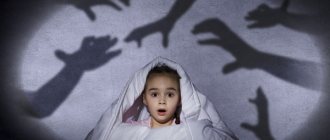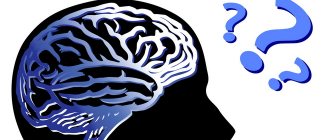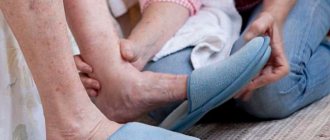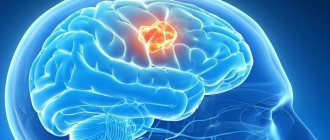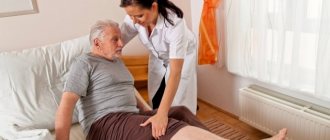With this disorder, a person experiences inexplicable and painful attacks of severe anxiety, accompanied by causeless fear. The condition is severe and often has accompanying vegetative symptoms. You can get help from a psychologist in Moscow for panic attacks by making an appointment by phone.
You should not deal with the disorder on your own. In order for phobias to disappear, their true cause must be established. The easiest and safest way to do this is through hypnosis sessions. Clinical psychologist Varvara Zarodina will help with panic attacks in Moscow.
The nature of panic attacks
Hypnosis relieves fears because it allows you to look into the patient's subconscious and find out what is bothering him. Almost all patients cannot remember what caused the first episode of anxiety or what factors caused its recurrence. This is explained by the presence of real traumatic experience, which is the basis of the disease. It is impossible to recall it in memory with the help of conscious efforts, since information about it has been repressed from the subconscious.
Hypnosis makes it possible to overcome the barrier established by the nature of the human psyche. The hypnosis method helps to discover the original factor (the core of the problem) and remove it from the depths of the subconscious. As a result, panic attacks disappear without a trace.
Definition of disorder
Panic attacks can affect adults and children: there are no age restrictions. This is an uncontrollable condition when a person has an acute defensive reaction. Such a reaction to danger occurs (to the extent that the subconscious perceives the event as a real threat). The strength of the reaction depends on the susceptibility of the individual, on his psychotype, on stress resistance and environmental conditions.
The nature of panic attacks is very broad. A person experiences anxiety when he is afraid. His only reaction is a panic attack. In a normal state, such a reaction is useful, it signals danger, warns that events have a negative impact.
If the nature of panic attacks is a distorted perception of reality, then the reaction will occur without justifiable reasons, intensifying and based on new fears or concerns.
Symptoms
A panic attack is an attack with characteristic symptoms. All a person’s attention is concentrated on one reaction. He cannot control himself, his own body and mind. The more he resists what is happening, the stronger the reaction. General symptoms of an attack:
- increased sweating;
- confusion;
- confused speech and chaotic movements;
- cardiopalmus;
- dizziness and severe headache;
- nausea.
Nausea is a possible symptom of a panic attack.
The symptoms of a panic attack depend directly on the underlying cause of the reaction. If the basis of the attack is fear, the patient is in a predominant state when he cannot cope with emotions: he is pounding, he experiences fear and does not know its cause.
It is very difficult to reduce the severity of the reaction. Sedatives give a temporary result: the suppressed fear does not disappear anywhere and with a new panic attack it causes more harm to the person.
Causes
Why does a panic attack occur? Psychosomatics are external physiological symptoms that arise due to psychological reasons. The fear that underlies the attack is accumulated anxieties and complexes: a person has not gotten rid of the burden of the past in a timely manner or, due to low self-esteem, he is unable to cope with the future.
Phobias intensify attacks, making them frequent and unpredictable. Panic attacks may indicate diseases: dystonia, neurosis, VSD. The physiological causes of attacks are associated with a weakening of the body, pain in the heart and high or low blood pressure.
VSD (vegetative-vascular dystonia) is manifested by panic attacks at any age : young patients who suffer from the disease experience attacks of suffocation and inexplicable fear, especially often at night.
Vegetovascular dystonia causes a panic attack at any age
The development of VSD is a gradual process that is difficult to notice in the early stages. The more symptoms that occur, the harder it is to make a diagnosis - the signs of the disease are similar to other diseases that occur in children and adolescents.
Causes of panic attacks and unexplained fear
Conducting hypnosis sessions for fears and panic attacks, a psychologist most often finds out that the disorder was provoked by:
- past psychological trauma;
- insurmountable circumstances that a person cannot cope with, which is why he is constantly nervous;
- inability to give natural outlet to negative emotions.
As soon as the psychologist-hypnologist establishes the root cause of the disorder, he proceeds to correcting panic attacks with hypnosis. In just a few sessions this problem can be solved.
How to recover from panic attacks
Hypnotherapy is recommended for various purposes, including:
- therapy for codependent relationships;
- correction of sexual disorders (impotence, frigidity);
- getting rid of addictions - gaming, drugs, alcohol, tobacco;
- treatment of phobias and obsessive-compulsive disorders;
- overcoming dental anxiety;
- getting rid of depressive syndrome, apathy;
- treatment of sleep problems;
- weight correction, treatment of eating disorders;
- treatment of somatoform disorders;
- professional and personal growth.
Hypnosis is effective in the treatment of vegetative-vascular dystonia and panic attacks. The result of hypnotic influence on physiology is such that all systems and organs improve their functioning. But the maximum healing effect is on the nervous system. As a result, the self-regulation mechanism of the cardiovascular, digestive, excretory, and endocrine systems returns to normal, and the symptoms of VSD go away.
Audio hypnosis: reviews
“I listened to an audio course on hypnosis for weight loss for 2 weeks. I felt the result literally on the second day after the start of the sessions - the craving for “forbidden” foods weakened and my appetite decreased. I began to enjoy simple food. Completely unnoticed, I lost 5 kg in these 14 days.
“The first time I listened to a recording with hypnotic settings, I couldn’t fall into a trance. But I tried a few more times - and it worked! The result is amazing: after listening to a 30-minute recording, you feel as if after many hours of rest!”
For this, a wide variety of methods are used, some of which have a more pronounced effect, while others help only with long-term and regular use.
Sudden panic attacks unsettle you and make life unbearable. As a result, depression and fear of new life circumstances appear. Often people resort to forbidden ways to solve a problem. To prevent this from happening, therapy should be started on time. Hypnosis is used to treat panic attacks.
Hypnosis is used to increase the effectiveness of cognitive behavioral therapy, it allows you to improve treatment results, achieve harmony within yourself, and get rid of anxiety. Hypnotherapy helps to penetrate a person's subconscious and replace anxious thoughts with positive ones.
Treatment of panic attacks with hypnosis is effective, so in 80 percent of cases this technique is preferred. In each case, therapy is selected individually, it all depends on the nature of the disorder. The advantage of this treatment over traditional treatment is that medications eliminate the symptoms of the disease, but do not affect the cause.
It is important to understand that hypnosis for panic attacks will be an effective way to get rid of fear only in one case. This will happen when the person is ready for such changes and has a positive attitude, and also trusts the doctor conducting the session.
A hypnotic trance is essentially a pause between sleep and wakefulness, during which a person is distracted from the hustle and bustle of everyday life. This allows you to look inside yourself. The trance state is absolutely natural, at this time all processes in the body are suspended, it does not pose any danger.
In a state of trance, new possibilities for controlling the body appear. This can be used by every person striving for self-improvement. But this is the case if there is an awareness that the cause of PA lies in the source - the head, psyche, nervous system, and not in the organs.
And the drama lies in the fact that suggestible, impressionable people easily put themselves into a trance without realizing it, as a result of which the heart rate increases, blood pressure decreases, nausea and shortness of breath appear - everything that accompanies panic attacks. That is, the person himself becomes the culprit for the occurrence of PA.
It is also necessary to distinguish the state of hypnotic trance and suggestion from af, “I’m fine.” Even if you repeat them constantly, positive changes do not always occur; sometimes their action has the opposite effect.
And again I'm talking about Panic Attacks. A very popular topic. Of all the letters I receive, more than half are about panic attacks. So, I will continue this topic.
In Russia, I have not encountered a similar diagnosis: Panic Attacks. This is because there was no such diagnosis in principle. And the state of panic attack itself was called a vegetative-vascular crisis.
That is, I want to say that I also had similar patients in Russia, only the name Panic Attacks itself was not used. So, I can say with confidence that I have been familiar with panic attacks for quite some time.
But first, I’ll immediately answer the question I posed in the title: “How to recover from panic attacks.” So, in order to recover from panic attacks, you DO NOT NEED TO TREAT THEM AT ALL!
Now let me explain what I mean. And I’ll start from afar, looking into the past, when the first people appeared on earth. I do not specify the time, because among my readers some will be sure that the human race originated from Adam and Eve, and others - that as a result of evolution.
One way or another, our ancestors had a hard time. They lived in caves and ate what they brought from hunting. A lot of enemies, unbridled nature and so on. As we would say now, our ancestors lived in constant stress.
And now we come to the crux of the problem. Such a Neanderthal (or the grandson of Adam - whichever is more convenient for you) is walking, for example, picking flowers for his chosen one. Or mushrooms - which is more likely. And suddenly a saber-toothed tiger jumps out of the bushes!
Here it is His Majesty STRESS! My heart is beating like a deer, my mouth is dry, my eyes are black. Blood pressure 200/100. That is, adrenaline is injected into the blood from the adrenal glands, incredibly boosting all physical capabilities.
What's next? The man either jumps to the side and runs away, or meets the tiger face to face, drawing a club from his holster and cracking it in the saber-shaped teeth. In any case, a person spends e-ner-gi-yu! The muscles and brain are working, adrenaline, glucose and other emergency reserves reserved for such stressful situations are being used up.
Now let’s move to your office, dear reader. Just now a visitor has left you, whom you would gladly crack with a paperweight or directly with the chair on which he was sitting. You are completely stressed - your blood is full of adrenaline and glucose, your muscles are twitching, you are short of breath, like an asthmatic.
But you sit still because you cannot afford any reaction other than a mental one. Otherwise, the white brothers will come, put white clothes on you and take you to rooms under a triangular castle. All you can do is swear and break the pencil in your hand. And that's the whole reaction.
Once this happened... two... fifteen. Your sympatho-adrenal system goes haywire and pumps out adrenaline at the slightest sign of stress. Your muscles do not have time to relax and recover after such shocks. I’m not talking about blood vessels at all - constant surges from spasms to paralysis. To which the body reacts with headaches and fainting, respectively.
Is the picture good? This is vegetative-vascular dystonia or VSD. Or as they used to call NCD - neurocirculatory dystonia. It's all the same thing. When nerves, vessels, muscles lose synchronicity of interaction, and work according to the principle - some go to the forest, some for firewood. And as you know, the further into the forest, the thicker the partisans. The situation is starting to get worse.
And it is against this background that a crisis can occur. That is, there’s not even that damn visitor. There is nothing at all - you are lying in bed at night. And suddenly bam! The condition is as if a pack of wolves jumped on you. Or, as an option, you take the decisive penalty in the final, in the last minute of the match and in front of tens of thousands of fans.
If anyone didn’t know, here it is, citizen Panic Attack in its purest form. I will repeat for those in the tank - a stress reaction in the complete absence of a stimulus. A tiger leap without the tiger itself is what PA is.
Why does PA not need to be treated? Because it is not the PA itself that needs to be treated, but the entire body. You can, of course, go to a psychiatrist. Out of the kindness of his heart, he prescribes “happiness pills” for you. You will be big and fat, laughing every five minutes and jumping every three meters. Do you need this?
Of course, these “happy pills” will save you from panic attacks. But this is the same as treating dandruff with a guillotine. Because then you will have to get rid of your addiction to the pills themselves. And this is not an easy task, believe me.
Symptoms of the condition
Panic attacks can be recognized by certain physiological and psychological signs. Typically, patients complain of pain in the heart, tachycardia, difficulty breathing, flushing of blood to the face, a feeling of heat, dizziness, tremor, and increased sweating. They have a terrifying thought that death is approaching. Many people feel like they are going crazy. A person seems to observe himself from the outside, but cannot control himself.
Physical and psychological symptoms are closely interrelated. They reinforce each other, so it is very important to prevent the progression of panic attacks.
How I recovered from panic attacks. No drugs.
Hello, this is my first post, don't judge too harshly. The topic is of interest only to those who know what a panic attack is; to the rest, I apologize for clogging up the airwaves.
“People who know how to adapt to living conditions and solve life problems are usually assessed as mentally healthy. If these abilities are limited and a person cannot cope with everyday tasks in personal, family life or at work, when he is unable to achieve personal goals, then we may be talking about some degree of mental disorder" (Wikipedia)
The first time I was pinned down was at work. It was my last working day before the vacation, I was terribly tired, I was all in anticipation of the long-awaited vacation. And then it happened. My heart began to pound, I began to feel short of breath, my head started to feel stuffy, like my ears are stuffy on an airplane.
The feeling of instant death was so terrible that it was impossible to cope with it. I called my husband and told him to immediately take a taxi to pick me up, because it was impossible to get behind the wheel myself. He came all scared and took me away.
At home I took my blood pressure – 145/90, a bit high, but I calmed down and didn’t call an ambulance. I didn’t understand at first what it was, so I made allowances for overwork and the long wait for vacation. The holiday was supposed to be at the dacha, where we went that same evening. And it had to happen that almost before the dacha an ambulance drove towards us. Everything is new for me, my heart is jumping out, lack of air and the animal horror of death.
Arriving at the place, I measured my blood pressure again – 160/something. Horror came in waves. I was sure that I would either have a stroke, or right now I would go crazy or die. They called an ambulance, scaring the neighbors. While we were waiting for the doctors, they took my blood pressure, it jumped from normal numbers to sky-high ones.
The neighbor explained that this does not happen with a stroke. The doctors who arrived gave me some glycine under my tongue, gave me a sedative injection and assured me that it was not fatal. So they left, enlightening me that all “this” was from overwork and nerves and introduced me to the new concept of “Panic Attack”. We were with PA for almost 2 years. Those. It held strong for almost a year, and the second year was spent on rehabilitation.
During the vacation, I calmed down, rested, celebrated my birthday, in short, I almost forgot about that horror. The second time was worse. I was driving to work, I was in a great mood, I was driving, listening to loud music. And then I thought, what if this condition catches me behind the wheel?
So I went to work in a coma, in winter with the window open to get more air (later it turned out that in my unconsciousness I broke the cigarette lighter and climate control switch, as soon as I didn’t crash into anyone..). At work, when the pressure came, I would run outside to smoke, just to get away somewhere from people.
There wasn’t enough air - she opened the window, freezing the employees; I felt sick - I ran away somewhere, rushed about, constantly measuring my off-scale pulse. I looked and felt crazy, I was afraid of not walking straight down the long corridor, it seemed to me that I was being tossed from side to side, I was afraid of fainting, I was very ashamed.
And one more thing - I ate everything that wasn’t nailed down and ate it constantly (in a year I gained 13 kg, lost it, thank God and my obsession).
My symptoms of PA: extreme fear of death, lack of air, frequent shallow breathing (you can’t breathe before you die
